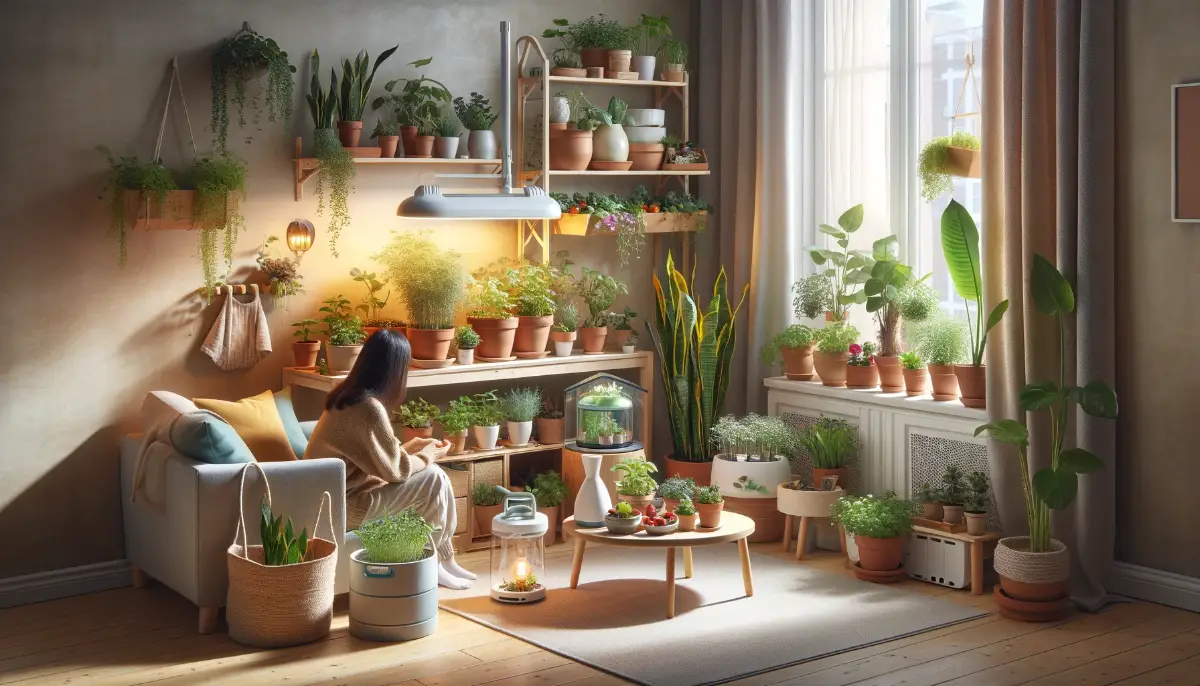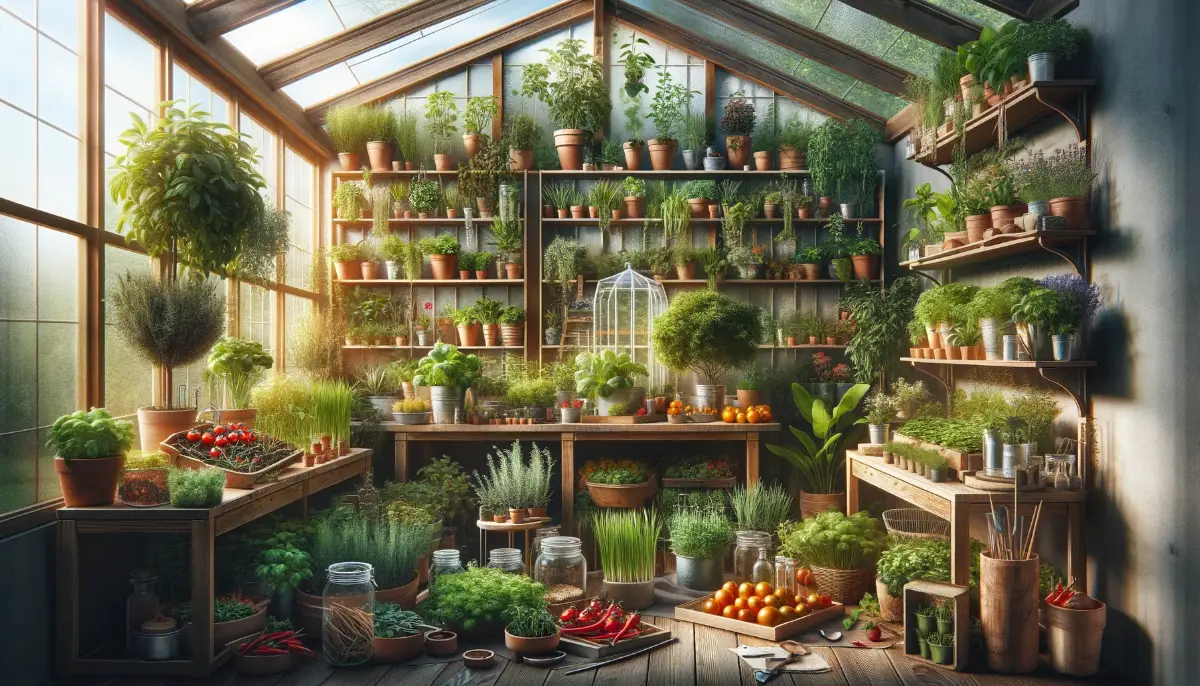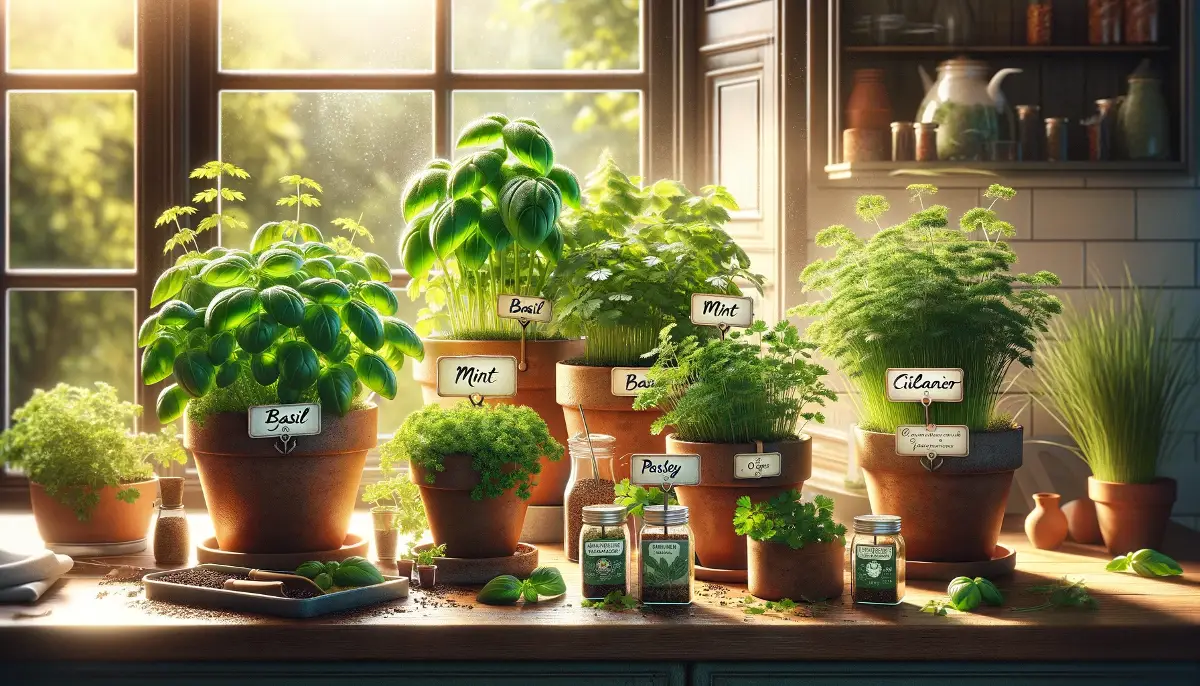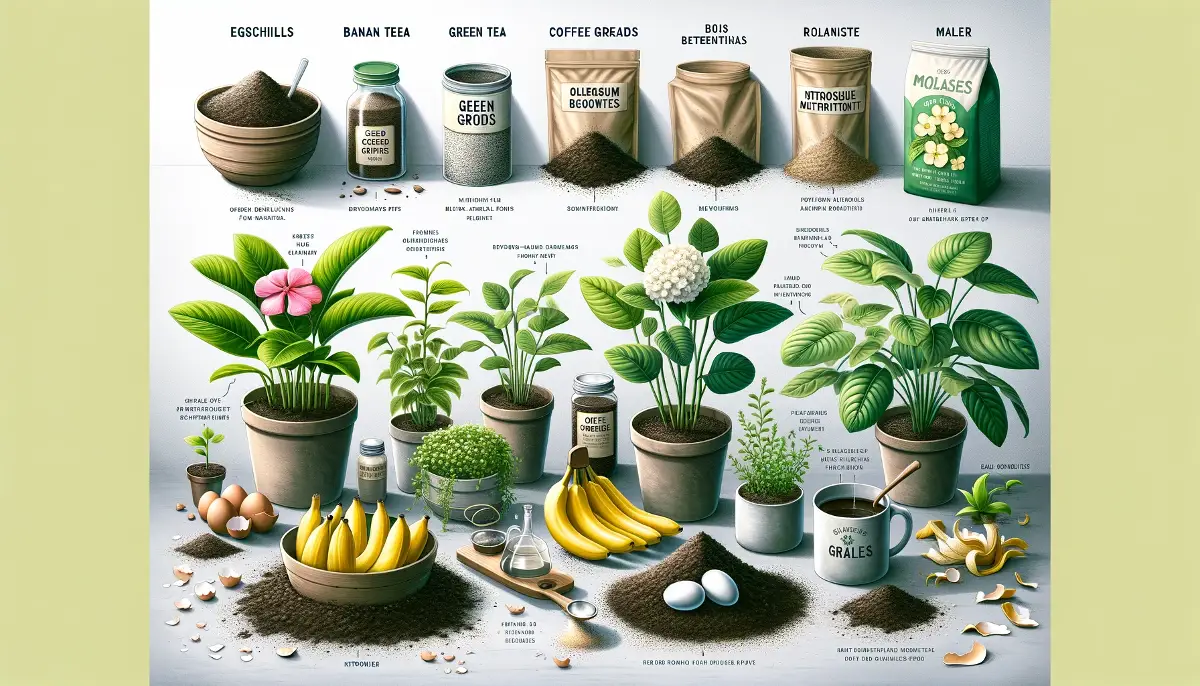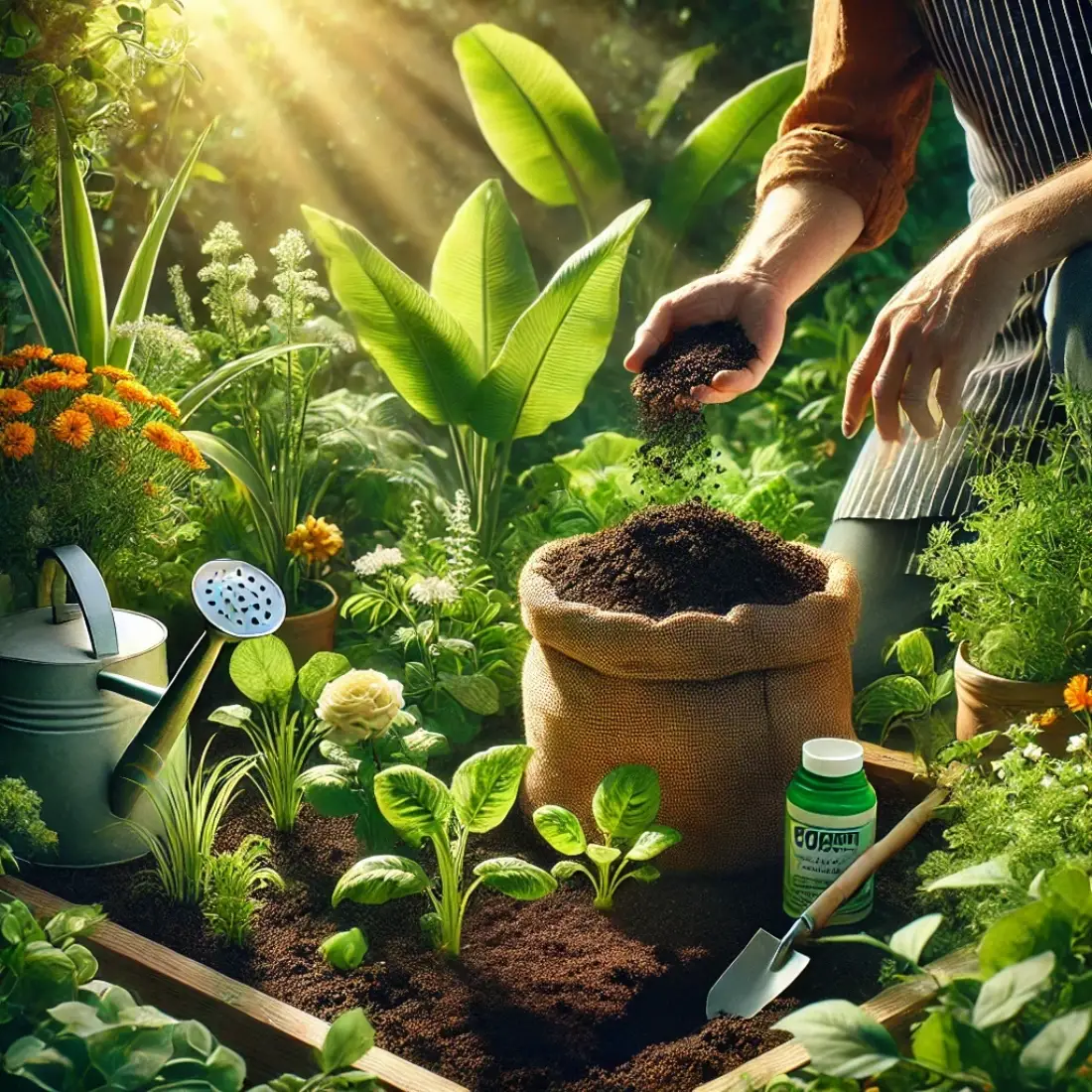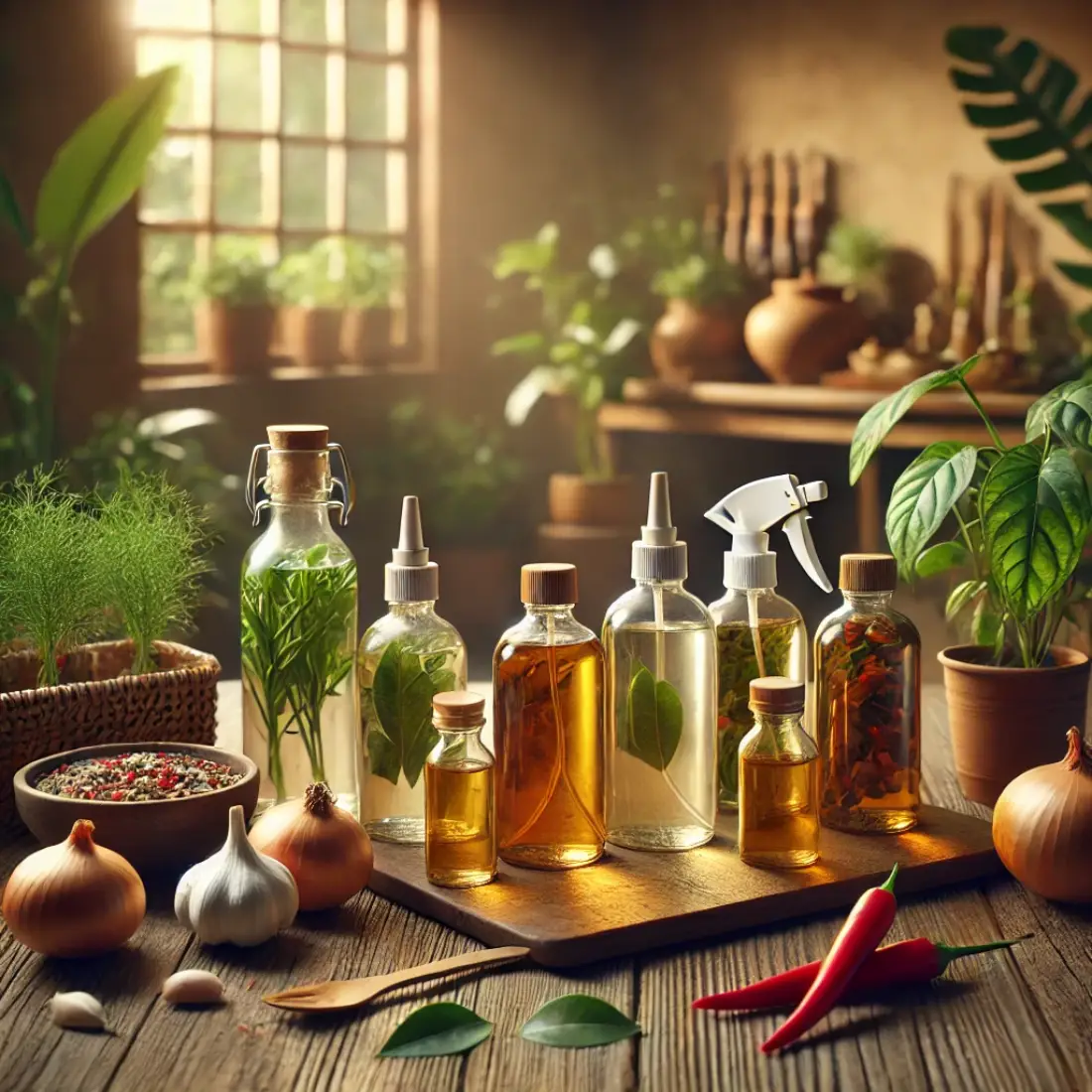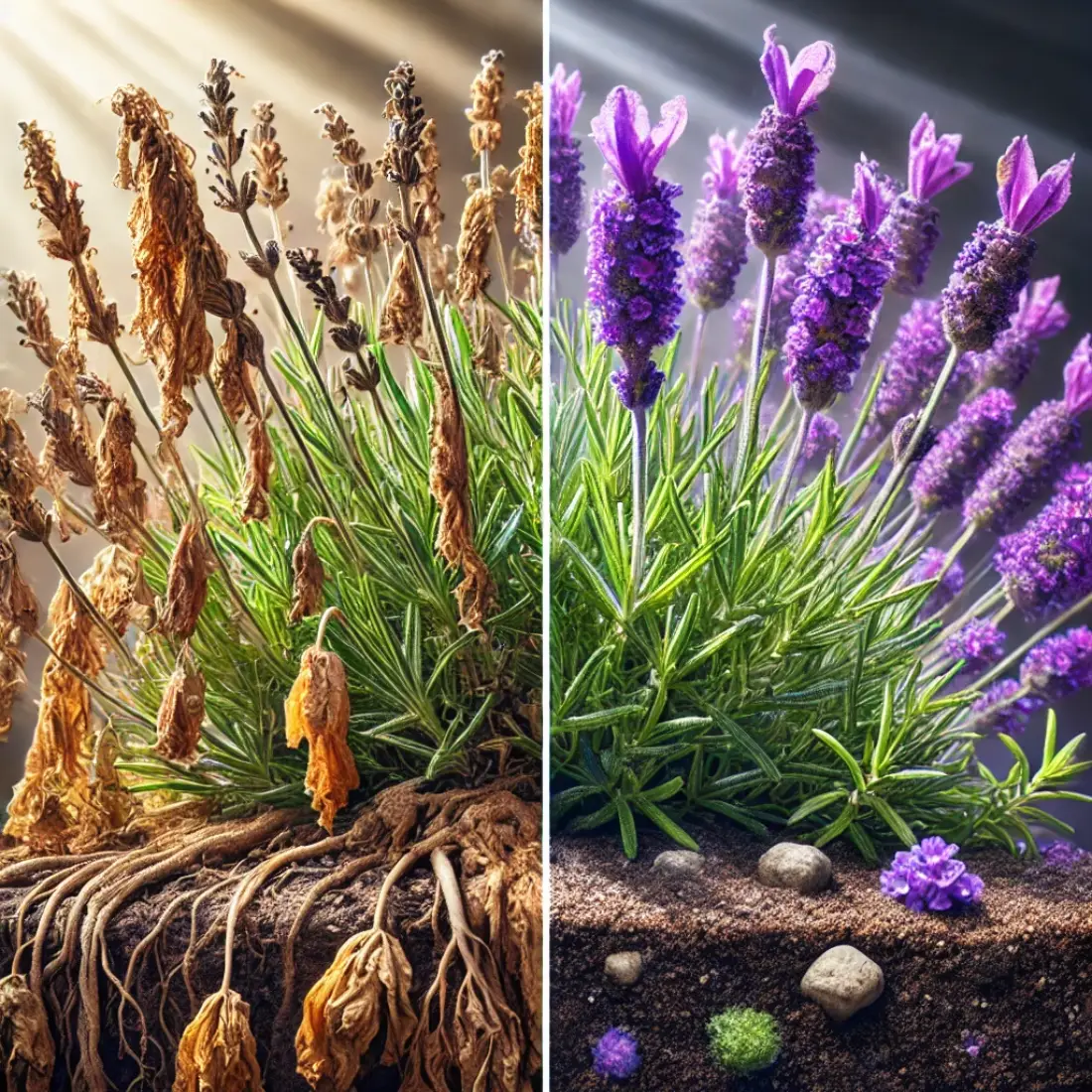Embarking on the journey of organic indoor gardening unfolds a world where your living space becomes a vibrant sanctuary of fresh produce and flourishing greenery. It’s not just about bringing the outdoors inside but embracing a lifestyle that harmonizes with nature’s rhythm, devoid of synthetic additives.
This growing movement towards indoor cultivation with an organic ethos is not just a trend; it’s a pathway to enhancing our health, well-being, and environmental stewardship.
- Fresh, organic produce at your fingertips year-round.
- Complete control over your plants’ growing conditions.
- Natural pest management fosters a healthier living environment.
- Extended growing seasons beyond traditional outdoor limitations.
- Significant improvements in air quality and personal well-being.
Benefits for Health and Well-being
Emotional Therapy
The act of nurturing plants is inherently therapeutic. It’s a practice that demands mindfulness and in turn, offers a unique form of solace. The routine of watering, pruning, and caring for your plants can alleviate stress, fostering a serene and contented mind.
Physical Health Benefits
Indoor gardening is more than a passive hobby; it’s an active engagement that promotes physical health. The bending, stretching, and attention to detail involved can be surprisingly effective in keeping you physically active. Moreover, the presence of plants has been linked to lower blood pressure, reduced fatigue, and overall better mental health.
Improvement in Air Quality
Indoor plants are not just decorative; they’re functional. Through their natural processes, plants have the ability to improve air quality within our homes. Certain species like snake plants, spider plants, and peace lilies are especially adept at filtering out common household toxins and pollutants such as benzene, formaldehyde, and trichloroethylene. This natural purification process can lead to better respiratory health, fewer allergies, and a healthier environment for us to live in.
Enhanced Nutritional Intake
Organic indoor gardening ensures that the food you consume is as fresh and nutritious as possible. By avoiding pesticides and synthetic fertilizers, you’re not only protecting the environment but also ensuring that your food is richer in nutrients. Freshly picked herbs, fruits, and vegetables grown in your indoor garden are likely to have higher levels of vitamins and minerals compared to those that have traveled miles to reach your plate.
The Science Behind Organic Indoor Gardening
Fresh Organic Produce
Nothing compares to the taste and nutritional value of freshly harvested fruits, herbs, and vegetables. Organic indoor gardening allows you to bypass the constraints of seasons, offering a perpetual bounty of freshness. With the right setup—think growing lights, humidifiers, and a bit of planning—you can enjoy summer’s sweetness in the dead of winter.
Control Over Environment
The whims of the weather no longer dictate the fate of your plants. Indoors, you’re the master of microclimates, ensuring your green companions thrive unaffected by frost or scorching sun. This control extends to light exposure, temperature, and humidity, creating an idyllic environment for growth.
Protection from Pests
Gone are the days of battling outdoor pests that view your garden as their feast. Indoor gardening minimizes these encounters, allowing for a more organic approach to pest management. Vigilance and natural deterrents can keep those unwelcome guests at bay.
Extended Growing Season
Why limit gardening to specific months? Indoor cultivation breaks the cycle, offering year-round growth opportunities. Whether it’s starting seedlings early or extending the life of your plants post-summer, the indoors is a sanctuary for continuous growth.
Air Purification
Plants are nature’s air purifiers. Through photosynthesis, they absorb carbon dioxide and release oxygen, enhancing the air quality of your home. Many indoor plants also have the ability to filter out toxins and pollutants, making your indoor environment healthier.
Implementing Organic Practices in Indoor Gardening
Natural Pest Management Strategies
Embrace companion planting within your indoor garden to naturally deter pests. For instance, planting basil alongside your tomatoes can help repel flies and mosquitoes, while marigolds can fend off aphids. Utilizing “soft” chemicals such as soapy water or neem oil can also be effective against pests without harming your plants or the environment.
Organic Soil and Fertilizers
The foundation of any garden, indoor or not, is its soil. Opt for organic potting mixes that are free from synthetic chemicals to ensure your plants get off to the best start. Additionally, consider making your own compost or using organic fertilizers to nourish your plants. This not only reduces your environmental footprint but also promotes healthier plant growth.
FAQs on Eco Indoors Gardening
What are the best plants for organic indoor gardening?
Ideal plants for organic indoor gardening include herbs (such as basil, mint, and chives), leafy greens (like spinach and lettuce), and fruits (such as strawberries and tomatoes). These plants not only thrive indoors but also provide fresh produce for your kitchen.
How do I start an organic indoor garden?
Starting an organic indoor garden begins with choosing the right location—ideally, a spot with plenty of natural light. Select organic seeds or seedlings, and use organic soil and pots. Remember to water appropriately and use natural pest control methods.
Can indoor gardening really improve air quality?
Yes, numerous studies have shown that indoor plants can improve air quality by filtering out common volatile organic compounds (VOCs) and producing oxygen, thereby creating a healthier living environment.
What are some common pests in indoor gardens and organic ways to control them?
Common pests include aphids, spider mites, and fungus gnats. Organic control methods include introducing beneficial insects, like ladybugs, applying neem oil, or using insecticidal soap made from natural ingredients

